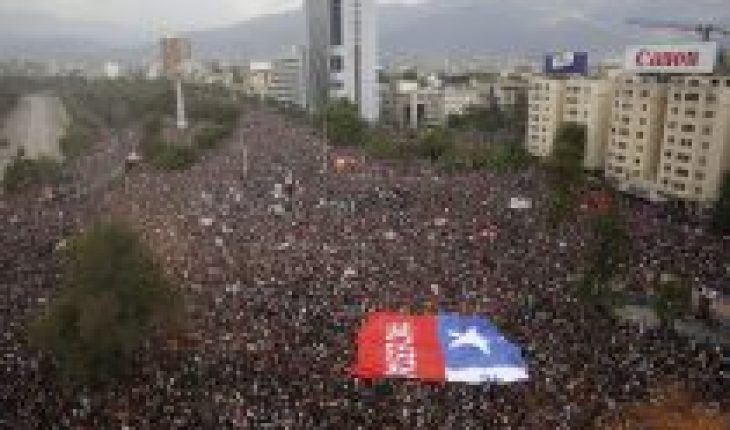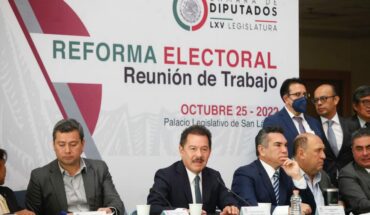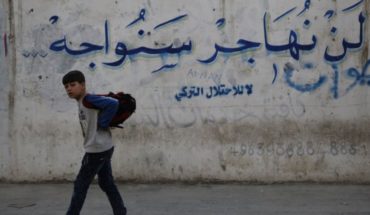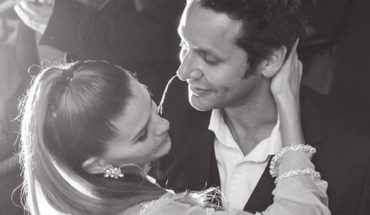On October 18, 2021, he highlighted several relevant issues to review regarding the current discussion on violence, protest and human rights. In the first place, the discourse and actions of the current government contradict a human rights perspective that addresses social conflict, this because they hinder the exercise of the right to protest and citizen demonstration and put at risk such fundamental rights as life or physical integrity. The responsibility of States is that if in the context of a protest some persons commit acts that may constitute crimes, their law enforcement and security forces must contain and act in accordance with the principle of proportionality and necessity. A non-targeted action violates the right to protest and demonstration, and even more seriously, puts at risk the physical and mental integrity of people, as shown by countless cases during the last two years. In addition, inaction in the face of this type of event intensifies them, which is sometimes fueled by the infiltration of the same police forces that must contain them.
This is a state deficit, to the extent that the police forces act from an inertia anchored in the doctrine of national security, and therefore reproduce the criminalization and even dehumanization of those who participate in the protests in general, and popular social groups in particular transmuting them into ‘internal enemies’. At the same time, the current government has absolute responsibility for the human rights crisis that the country has been going through for two years, with the latest statements by Undersecretary Galli being a zenith of the brazenness and ineptitude that has marked the government’s agenda in this matter.
Another element is the underlying but living historical connections that can be identified in the current protests. The struggle for human rights revolved around dictatorial state terrorism for decades, but today it seems to open up to a multiplicity of other issues, some of a very serious nature such as political prison. There is an intimate link between the struggles of the past and those of the present. Among other things, because of the connection between human rights violations, the 1980 Constitution and the impunity that has sustained the deployment of that project for three decades.
This is why struggles for justice, truth, memory, reparation and guarantees of non-repetition are so fundamental: they are a pillar for the free exercise of politics by society. That is what is being pushed today, and it is also what is being so strongly repressed. Progress on these five pillars is directly proportional to the democratic depth and capacity to resolve conflicts and tensions in peace that a country can have.
One last aspect is especially challenging for a coalition that aspires to profound transformations, as would be the case with Apruebo Dignidad. This, because in order to advance on that path, the mobilized society is essential. That is why it is so important to open a sincere and in-depth discussion on how to address the issue of violence within the framework of social mobilization. Continuing to think about the issue from a polarity between unleashed and criminal repression versus the uncritical acceptance of violence as intrinsic to the manifestation makes it impossible to face the multiple complexities that this phenomenon entails. Finding a middle ground between those two is a vain exercise, because it is a false dichotomy.
The construction of a complex State policy on these issues requires at least a constant exercise of reflection and inter- and transdisciplinary understanding that seeks to build paths for effective dialogue between multiple actors and forces that act and collide in these situations. Something like this seems impossible without a refoundation of Chile’s Carabineros, which should be a first priority for a transformative government. That horizon also implies recognizing that this is not a one-way issue, since the State is not the only entity active in this matter. A transformative political sector must be able to open up to social groups mobilized to listen to them and channel their demands and urgencies with their active participation. Trusts must be built that today are destroyed through concrete action and not only in speeches. The reproduction of mistakes and attitudes of the past will be very expensive in a context like this. Guarantee the exercise of the right to demonstrate and protest, and recognize it as a fundamental pillar of the exerciseAt the same time as ensuring social stability and moving towards a dialogued and peaceful resolution of conflicts, they are necessary conditions for profoundly transforming the ways in which we as a country equip ourselves with forces of order and security.
In short, in the short term it will be necessary to press for some fundamental issues: an end to political imprisonment, the fight against impunity and concrete progress in guarantees of non-repetition. This should also point to the decrease in violence as a form of protest, opening more spaces for discussions and profound changes in the medium and long term.
The content expressed in this opinion column is the sole responsibility of its author, and does not necessarily reflect the editorial line or position of El Mostrador.





